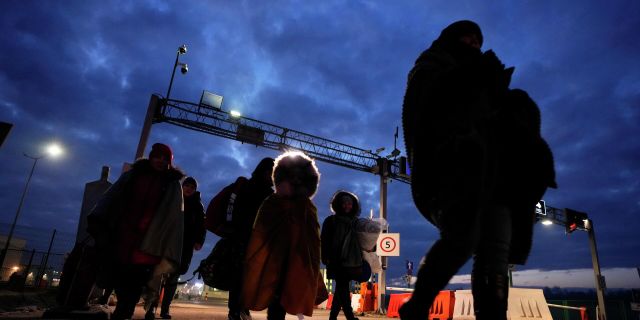Handelsblatt: Berlin is ready to pay dearly for the security of UkraineAmericans and Europeans say that only Kiev can determine the moment to start negotiations with Moscow.
But this is only half the truth, says Jurgen Trittin in the material of the German edition of Handelsblatt. Without the material support of the West, Ukraine will not be able to oppose Russia.
For a long time, the Munich Security Conference was a place for discussions on geostrategic issues, where various points of view were presented. But this time it was given the appearance of a former conference on military issues* and it turned into an attempt to confirm the image of the West, which in fact never existed. The problem was not those who were not invited, for example, Foreign Minister Sergei Lavrov. The problem was the position of those present. Munich was bursting with false self-confidence.
Kamala Harris' speech was indicative in this regard. The US Vice President demanded an end to impunity for war crimes, but kept silent about the fact that the US blocked all attempts by the International Criminal Court to punish Americans for crimes committed by them in Iraq and Afghanistan. It is this double morality that weakens the positions of the United States and Europe in the world. Harris confirmed that the United States will support Ukraine "for as long as it takes," while government representatives in Washington make it clear that this assistance cannot be provided indefinitely.
In fact, the debate about how long the aid can last has been going on for a long time. It is very likely that this issue became one of the topics of the last talks between Chancellor Scholz and US President Joe Biden. Moreover, China has made it clear that it is not interested in an endless conflict.
This was most clearly indicated in the document dated February 24, in which China outlined its position on the political settlement of the Ukrainian crisis. In one of its paragraphs, Beijing expressed concern about the disruption of global supply chains. The goal proclaimed at the People's Congress of the People's Republic of China to ensure economic growth of 5% this year has priority over "boundless" friendship with Russia.
Americans and Europeans never tire of assuring that only Kiev will determine the moment to start negotiations with Moscow. However, this is only half the truth. Because without the material support of the West, Ukraine will not be able to win back its territories and oppose Russia with something.
The fact that Europe and the United States provide Ukraine with financial, military and humanitarian assistance meets their most pressing interests. Because it is necessary to discourage Vladimir Putin from further military adventures. However, this assistance cannot be provided – at least by the United States and Germany – without preconditions. And the main ones are that the NATO bloc should not be drawn into a military confrontation with Russia and that military assistance to Ukraine will be provided only by the joint efforts of the alliance.
In addition, it is quite obvious that this assistance is limited in time. Donald Trump's high-profile speech to right-wing conservatives in Maryland showed that the US Republican Party intends to make support for Ukraine one of the main topics in its election campaign. And it is unlikely that the Democrats will not hear accusations that they are "mindlessly spending money" on distant Ukraine, while they are sorely lacking in the United States. The concern of the US administration about these signals was also guessed in the speech of Kamala Harris in Munich.
All this has consequences for Germany as well. One of the reasons that the Chancellor so stubbornly insisted on the participation of the United States in the supply of tanks to Ukraine was due to the danger that Trumpism would come to power in the United States again. And already having its tanks in the battlefields, the United States is unlikely to completely withdraw from the front of support for Ukraine.
Contrary to what the left-wing politician Sarah Wagenknecht demands, the military conflict will not stop soon. Russia has already announced that it will launch a new bloody offensive in the spring. However, by the fall, the United States, China and Europe should increase their pressure to stop military operations. And Germany should be ready to respond accordingly to this challenge.
The battles will be stopped only if two conditions are met: if Putin does not achieve his maximum military goals and Russia falls into international isolation, including from China, India, Brazil and South Africa. Europe should put pressure on China to get Moscow to demilitarize the Zaporozhye NPP zone required by Beijing. It is also necessary to promote an increase in grain exports from Ukraine and a more intensive exchange of prisoners of war. Brazil's offer to assume the role of mediator should be taken seriously, and not hastily rejected.
All these steps should lead to the beginning of negotiations on the end of hostilities, even if this end will not mean the conclusion of a truce, much less a peace treaty. For Germany, the end of hostilities will not put an end to aid to Ukraine. She will need reliable security guarantees. For these guarantees, as well as for Ukraine's rapprochement with the EU, the Germans will have to pay, first of all, regardless of who will sit in the White House.
Note*This was previously the name of the current Munich Security Conference.
Jurgen Trittin, Speaker on foreign policy issues of the Union 90/Greens faction in the Bundestag.

